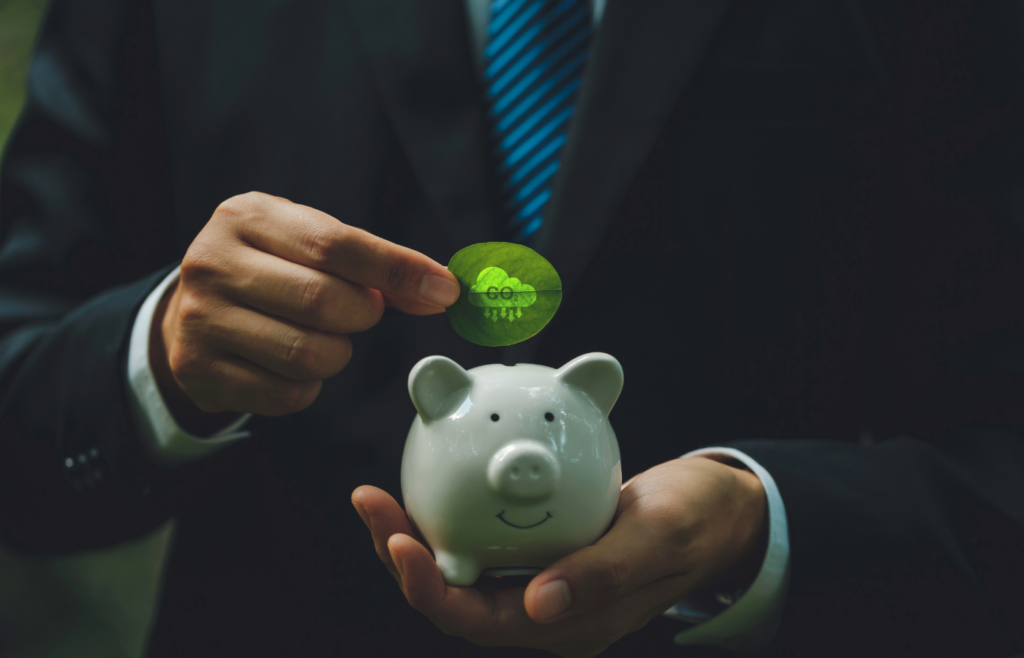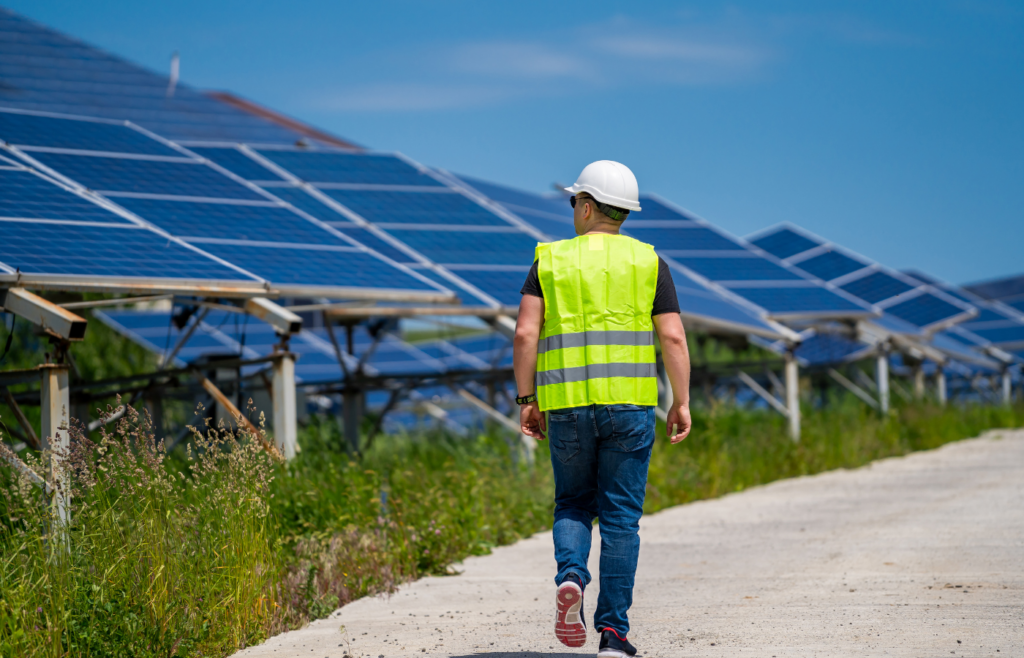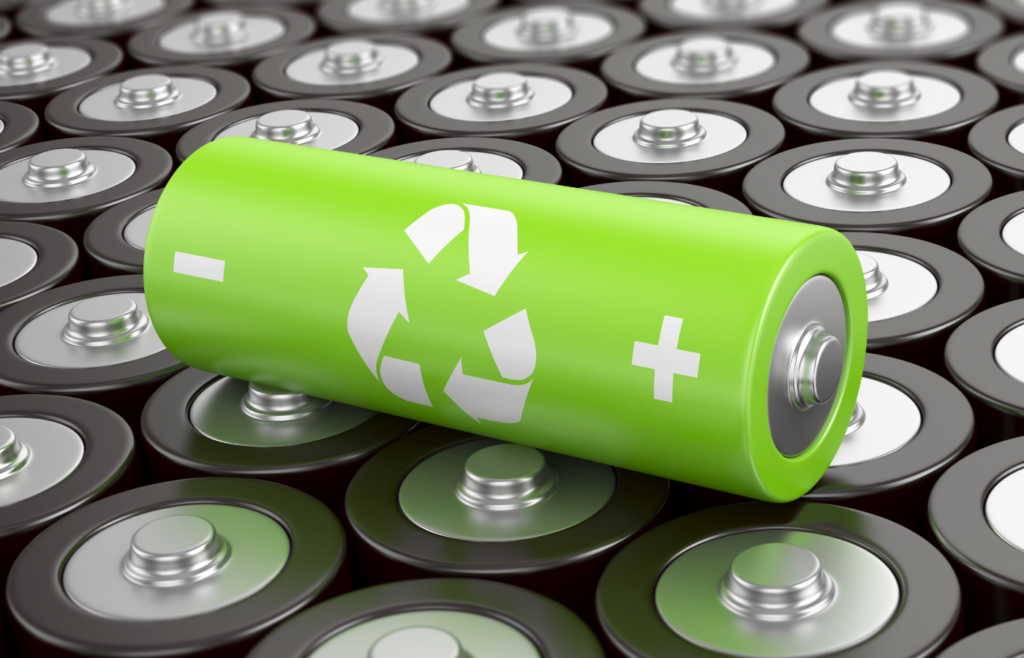Clean energy investments are crucial for mitigating the impacts of climate change by reducing greenhouse gas emissions, promoting environmental sustainability, and fostering a transition towards a low-carbon economy. Clean energy sources, such as solar, wind, and hydropower, offer renewable alternatives to fossil fuels, decreasing dependence on finite and environmentally harmful resources.
Beyond the environmental benefits, investing in clean energy contributes to energy security. They help diversify energy mixes and reduce reliance on geopolitically unstable regions for fossil fuel supplies. Clean energy investments also stimulate economic growth by creating jobs, driving innovation, and fostering a resilient energy infrastructure.
Today in Investing in Change, we shine the spotlight on clean energy investments and how they can help address the global energy challenge. Find out how investors are using their finances and influence to build a greener and more sustainable future.
What are Clean Energy Investments?

Clean energy investments involve directing capital towards projects, technologies, and initiatives that generate energy with minimal environmental impact. The focus is on harnessing renewable resources such as solar, wind, hydro, and geothermal power, while also promoting energy efficiency and sustainable practices.
The Urgency of Transitioning to Clean Energy

- Environmental Imperatives
The burning of fossil fuels for energy is a major contributor to climate change, air pollution, and resource depletion. Clean energy investments offer a critical solution to mitigate these impacts by shifting towards sustainable and environmentally friendly energy sources.
- Economic Opportunities
Beyond environmental considerations, clean energy investments represent a burgeoning economic opportunity. The transition to a low-carbon economy is creating jobs, fostering innovation, and driving economic growth in the renewable energy sector.
- Resilience and Security
Clean energy investments enhance energy security by diversifying energy sources, reducing dependence on finite fossil fuels, and creating a more resilient energy infrastructure capable of withstanding the impacts of climate change.
Principles of Clean Energy Investments
- Renewable Energy Generation
The primary principle involves investing in renewable energy sources such as solar, wind, hydro, and geothermal power. These sources generate electricity without depleting finite resources or emitting harmful greenhouse gases.
- Energy Efficiency
Clean energy investments also focus on improving energy efficiency across various sectors. This includes investments in technologies and practices that reduce energy consumption and optimise resource use.
- Innovation and Technology Adoption
Investing in cutting-edge technologies and fostering innovation is crucial for advancing clean energy solutions. From energy storage systems to smart grids, these innovations play a pivotal role in transforming the energy landscape.
Investment Opportunities in Clean Energy

- Solar Power
Photovoltaic solar panels are a prime investment opportunity, with the capacity to generate electricity from sunlight. Advancements in solar technology and decreasing costs have made solar power increasingly competitive.
- Wind Energy
Investments in wind farms and wind turbine technologies harness the kinetic energy of the wind to generate electricity. Wind energy is a rapidly growing sector, offering both onshore and offshore opportunities.
- Hydroelectric Power
Hydroelectric projects leverage the power of flowing water to generate electricity. Investments in both large-scale hydropower plants and innovative small-scale hydro solutions contribute to clean energy portfolios.
- Geothermal Energy
Geothermal power taps into the Earth’s internal heat to generate electricity and provide heating. Investing in geothermal projects supports sustainable energy generation with minimal environmental impact.
- Energy Storage Solutions
Clean energy investments extend to energy storage technologies, such as advanced batteries and pumped hydro storage, which enhance the reliability and stability of renewable energy systems.
Challenges in Clean Energy Investments
- Intermittency and Reliability
Renewable energy sources like solar and wind are intermittent, posing challenges to consistent power generation. Investments in energy storage and grid infrastructure are essential to address these challenges and ensure a reliable energy supply.
- Policy and Regulatory Uncertainty
Clean energy investments are often influenced by government policies and regulations. Uncertainties in these frameworks can impact investor confidence and hinder the scalability of clean energy projects.
- Upfront Capital Costs
While the long-term benefits of clean energy investments are substantial, the upfront capital costs can be a barrier. Governments, investors, and financial institutions are exploring mechanisms such as subsidies and incentives to overcome this challenge.
- Technological Risks
Investments in emerging clean energy technologies carry inherent technological risks. Investors must navigate uncertainties associated with the scalability, efficiency, and market acceptance of evolving clean energy solutions.
Financial Models for Clean Energy Investments
- Power Purchase Agreements (PPAs)
PPAs enable investors to sell the electricity generated by clean energy projects to buyers at predetermined rates. This provides a steady revenue stream, making clean energy investments financially attractive.
- Renewable Energy Certificates (RECs)
RECs represent the environmental attributes of clean energy generation and can be sold separately from the physical electricity. Investors can benefit from additional revenue streams by trading RECs.
- Tax Incentives and Subsidies
Governments worldwide offer tax incentives, subsidies, and grants to encourage clean energy investments. These financial incentives enhance the economic viability of clean energy projects.
- Green Bonds
Green bonds are fixed-income securities specifically earmarked for environmentally friendly projects, including clean energy initiatives. Investors purchase these bonds, providing capital for sustainable projects.
Investor Strategies and Portfolios

- Diversification
Smart investors diversify their clean energy portfolios across different technologies and geographies to mitigate risks associated with market volatility and regional variations in energy demand.
- Long-Term Investment Horizon
Clean energy investments often yield returns over the long term. Investors with a patient and long-term perspective align well with the development and maturation of clean energy projects.
- Due Diligence on ESG Factors
Environmental, Social, and Governance (ESG) considerations are integral to clean energy investments. Investors conduct thorough due diligence to assess the sustainability, social impact, and governance practices of clean energy projects.
- Engagement and Advocacy
Many investors actively engage with companies and projects to encourage sustainable practices and advocate for policies that support the growth of the clean energy sector.
Global Initiatives and Clean Energy Investments
- The Paris Agreement
The Paris Agreement has catalysed global efforts to combat climate change by limiting global temperature increases. Clean energy investments play a central role in achieving the renewable energy targets outlined in the agreement.
- Sustainable Development Goals (SDGs)
Clean energy investments align with various SDGs, including Goal 7 (Affordable and Clean Energy) and Goal 13 (Climate Action). Investors leveraging the SDGs as a framework contribute to broader global sustainability goals.
- International Collaborations
Governments, organisations, and investors engage in international collaborations to accelerate clean energy transitions. Initiatives like the International Solar Alliance and collaborative research projects promote shared solutions to global energy challenges.
Technological Innovations in Clean Energy
- Advanced Energy Storage
Innovations in energy storage technologies, such as next-generation batteries and advanced storage systems, contribute to overcoming the intermittency challenges associated with renewable energy sources.
- Smart Grids
Smart grid technologies enhance the efficiency and reliability of energy distribution. Investments in smart grids enable better integration of renewable energy sources and improve overall energy system resilience.
- Green Hydrogen Production
Clean energy investments are increasingly focusing on green hydrogen production, using renewable energy to electrolyse water. Green hydrogen has the potential to serve as a clean energy carrier in various industries.
- Floating Solar Farms
Innovations in solar technology extend to floating solar farms, which harness solar energy on bodies of water. These projects optimise land use and provide an innovative solution for energy generation.
The Role of Corporate Leadership
- Corporate Renewable Energy Goals
Many corporations are setting ambitious renewable energy goals as part of their sustainability strategies. Investing in renewable energy projects allows companies to meet these goals while contributing to the growth of the clean energy sector.
- Power Purchase Agreements
Corporations often enter into PPAs to secure a stable and cost-effective supply of renewable energy. These agreements with clean energy projects support the financial viability of such initiatives.
- Innovation and Research Collaborations
Corporate leaders actively engage in research collaborations and innovation initiatives to drive advancements in clean energy technologies. These collaborations contribute to the development of sustainable solutions.
Community and Social Impact

- Local Job Creation
Clean energy projects create job opportunities at the local level, ranging from manufacturing and installation to maintenance and operation. Investments in renewable energy contribute to sustainable economic development.
- Community Empowerment
Clean energy investments empower communities by providing access to reliable and affordable energy. Off-grid and decentralised renewable energy projects enhance energy access in remote and underserved areas.
- Health Benefits
The transition to clean energy reduces air pollution, resulting in improved public health outcomes. Investments in renewable energy contribute to mitigating the negative health impacts associated with traditional fossil fuel-based energy sources.
The Future of Clean Energy Investments

- Advancements in Energy Storage
Continued advancements in energy storage technologies will play a pivotal role in overcoming the intermittency challenges of renewable energy sources, making clean energy investments more attractive and reliable.
- Global Scaling of Clean Energy Solutions
The future of clean energy investments involves scaling proven solutions globally. The replication of successful clean energy projects across different regions contributes to a more widespread and impactful transition.
- Technological Convergence
The convergence of technologies, such as artificial intelligence, the Internet of Things (IoT), and clean energy, will drive efficiency improvements and innovation in the clean energy sector.
- Increased Financial Innovation
Financial instruments and mechanisms for clean energy investments will continue to evolve. Innovations such as green finance, impact investing, and sustainability-linked financial products will become more prevalent.
Energising Change

Clean energy investments represent a dynamic force reshaping the global energy landscape and driving positive environmental impact. As investors, governments, and corporations increasingly recognise the urgency of transitioning to sustainable energy sources, clean energy investments stand at the forefront of this transformative journey.
Aside from the financial returns that they offer, clean energy investments hold the promise of a greener, more resilient planet—a testament to the potential of strategic capital allocation to effect positive change.
For more news & insights, stay tuned to the AIC website.

